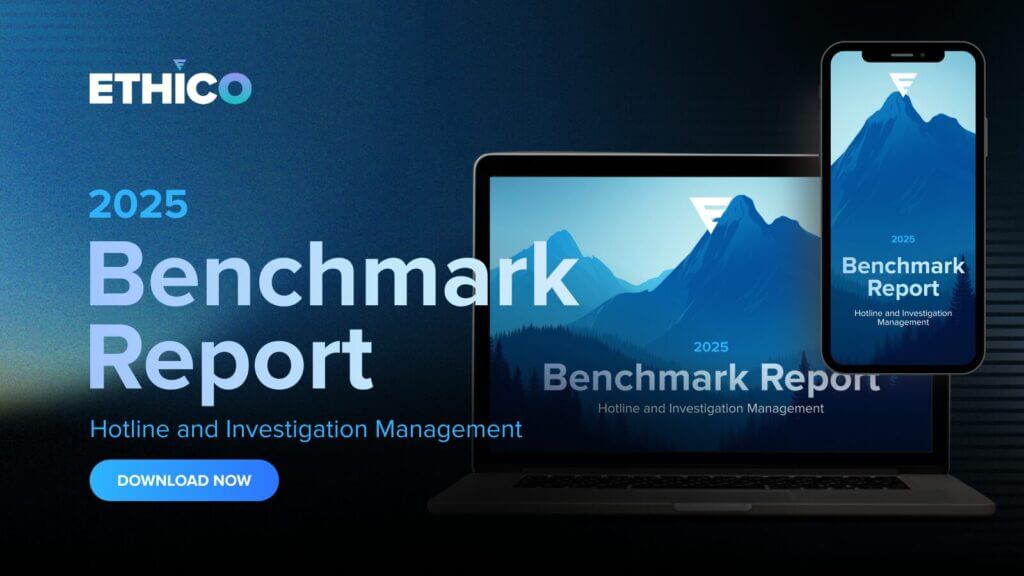One Program, Multiple Jurisdictions: Resilient Global Compliance 🌎💪


Full Episode Available
WATCH ON-DEMANDGlobal compliance officers are modern-day tightrope walkers—balancing corporate policies with a patchwork of international regulations while maintaining their footing on shifting legal ground. This webinar explored the complex challenges faced by global compliance officers when operating across multiple legal jurisdictions. The discussion covered essential strategies for managing cross-border investigations, regulatory monitoring, and cultural considerations that impact compliance effectiveness. Speakers shared practical approaches to balance corporate policies with local legal requirements while maintaining consistent ethical standards worldwide.
This episode of The Ethicsverse examined the multifaceted nature of global compliance in multinational corporations, highlighting the procedural and cultural challenges inherent in cross-border operations. Speakers Amber Hersma (Sabre Corp), Ivanchenko Olga (formerly with IBM), and hosts Nick Gallo and Matt Kelly discussed strategies for monitoring regulatory changes, conducting effective investigations across borders, and implementing remediation plans with cross-cultural sensitivity. The discussion emphasized the importance of local engagement, documentation standards, and proactive communication with business leaders to enhance compliance program effectiveness. Key themes included balancing global standards with local legal requirements, leveraging local expertise, and maintaining consistent investigation protocols while respecting cultural differences.
Meet The Ethics Experts:
- Ivanchenko Olga, Business Integrity & Compliance Expert
- Amber Hersma, Senior Compliance Manager, Sabre Corporation
- Matt Kelly, CEO & Editor, Radical Compliance
- Nick Gallo, Chief Servant & Co-CEO, Ethico
Establishing Consistent Investigation Protocols
- Standardized investigation procedures are critical for global compliance effectiveness, as they ensure all investigations are conducted uniformly regardless of which department leads them.
- Documentation standards must be rigorously maintained across all jurisdictions to create an auditable trail that protects the organization during potential retaliation claims or regulatory inquiries.
- Creating comprehensive investigation policies with clear handoff procedures between departments (HR, Legal, Compliance) reduces the risk of important matters falling through jurisdictional cracks while enabling trend analysis that can identify systemic issues across global operations.
Monitoring Regulatory Changes Across Jurisdictions
- Compliance teams must develop systematic approaches to tracking regulatory changes across multiple jurisdictions, leveraging various information sources including listservs, law firm updates, and specialized vendor notifications.
- Effective regulatory monitoring requires a centralized repository where all regulatory updates are collected, triaged, and assigned clear action items with accountable stakeholders to ensure timely implementation across affected business units.
- Creating a structured process for assessing the materiality and urgency of regulatory changes enables compliance teams to prioritize limited resources toward changes that present the greatest risk or potential impact to the organization’s operations.
Engaging Local Expertise for Cultural Navigation
- Local compliance representatives, legal counsel, and business leaders provide essential insights into cultural norms and regulatory nuances that global compliance teams might otherwise miss when implementing policies or conducting investigations.
- Building relationships with local stakeholders helps overcome cultural barriers, improves policy adoption, and provides early warning for potential compliance issues that might not be obvious from headquarters’ perspective.
- Compliance officers should leverage local expertise not only for investigations but also for policy adaptation, training delivery, and communications to ensure messages resonate properly within each cultural context.
Balancing Global Standards with Local Requirements
- Multinational organizations must navigate the tension between maintaining consistent global compliance standards while adapting to local regulatory requirements and cultural expectations across various jurisdictions.
- Adopting a “most stringent law” approach often provides practical guidance when facing conflicting requirements, allowing the organization to set a baseline standard that likely satisfies all jurisdictions while making specific adaptations where absolutely necessary.
- Regular communication between global and local compliance functions helps identify potential conflicts early and develop solutions that maintain the integrity of the compliance program while respecting local legal obligations.
Communicating Effectively with Business Leaders
- Securing business leader buy-in for compliance initiatives requires framing regulatory requirements in terms that resonate with business priorities, such as presenting cost-benefit analyses that clearly articulate both compliance costs and potential regulatory penalties.
- Early and transparent communication with leadership about emerging compliance issues allows the compliance function to control the narrative rather than having executives learn about problems from external sources or operational disruptions.
- Compliance officers should strive to demonstrate how their function protects business interests and enables ethical growth rather than merely imposing restrictions, positioning compliance as a business partner rather than an obstacle.
Structuring Cross-Border Investigations
- Cross-border investigations require careful planning that accounts for local legal requirements, cultural sensitivities, and potential language barriers before any investigative action begins.
- Investigation planning documents should address jurisdictional considerations including data privacy laws, labor requirements (such as works council approvals), interview protocols, and documentation standards specific to each involved location.
- Compliance teams must evaluate whether local investigative resources should conduct interviews to avoid cultural insensitivity, while maintaining consistent standards and proper oversight from the global compliance function.
Managing Data Privacy in Global Investigations
- Compliance officers must navigate varying data privacy regimes when conducting cross-border investigations, particularly when transferring or reviewing employee data across jurisdictions with different protection standards.
- Investigation protocols must incorporate jurisdiction-specific requirements for data collection, processing, retention periods, and subject notification to avoid creating additional legal exposure during the investigation process.
- The investigation planning phase should include consultation with privacy experts to create compliant workflows that respect both local privacy laws and the organization’s need to gather necessary information for a thorough investigation.
Implementing Effective Remediation Measures
- Remediation planning should begin early in the investigation process, with careful consideration of both immediate corrective actions needed and longer-term systemic improvements to prevent recurrence.
- Involving local business leaders in remediation planning increases buy-in and effectiveness by incorporating their knowledge of operational realities while giving them ownership in the solution implementation process.
- Establishing a structured follow-up process at 30, 60, or 90-day intervals ensures remediation measures are properly implemented and effective, allowing for refinement of approaches based on real-world feedback and changing conditions.
Enhancing Speak-Up Culture Globally
- Effective whistleblower programs must be adapted to address cultural attitudes toward reporting misconduct while maintaining global standards for confidentiality and non-retaliation protections.
- Companies should provide anonymous reporting options with encrypted communication capabilities that allow ongoing dialogue with reporters while maintaining their anonymity, particularly in jurisdictions where cultural barriers to speaking up may be stronger.
- Regular promotion and education about reporting channels should be culturally calibrated to address local concerns while emphasizing the organization’s commitment to addressing issues fairly regardless of where they occur.
Building Compliance Into Business Processes
- Integrating compliance considerations into standard business workflows helps prevent situations where business units complete transactions before compliance review occurs, avoiding after-the-fact remediation challenges.
- Regular participation of compliance officers in regional management meetings, budgeting sessions, and business planning discussions creates visibility into upcoming initiatives that may have compliance implications.
- This proactive approach positions compliance as a business enabler that helps identify and mitigate risks early rather than a function that only reacts to problems after they emerge, significantly improving both business and compliance outcomes.
Closing Summary
Successfully navigating global compliance challenges requires a delicate balance between maintaining consistent corporate standards and respecting local legal and cultural differences. The webinar emphasized that effective compliance programs must build strong communication channels between headquarters and local operations, leverage appropriate technology, and foster a culture of integrity that transcends geographic boundaries. By implementing standardized processes while remaining flexible to local conditions, compliance officers can create programs that protect their organizations while enabling ethical business growth in diverse global markets.






































